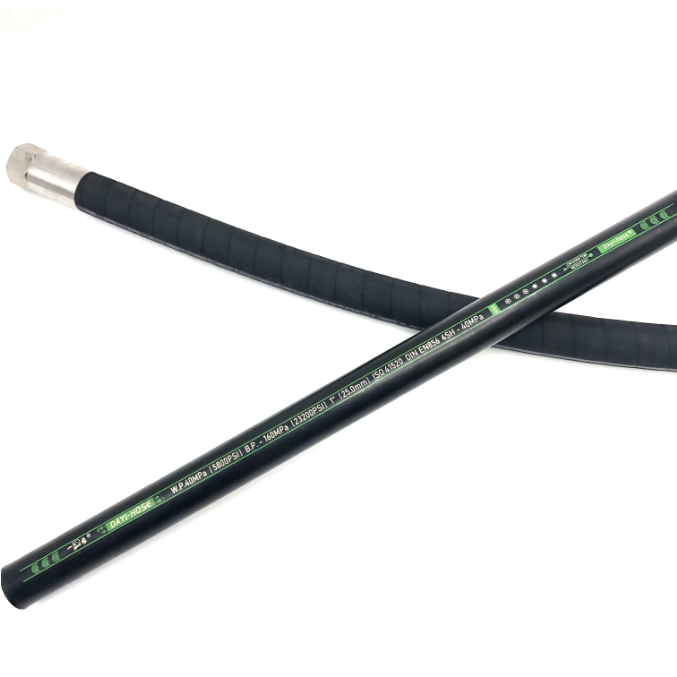335345435
Сен . 23, 2024 19:39 Back to list
Hydraulic Hose Banjo Connectors for Reliable Fluid Transfer and Secure Connections
Understanding Hydraulic Hose Banjo Fittings
In the world of hydraulic systems, efficient fluid transfer is vital for machinery and equipment operation. Among the various components used to facilitate this transfer, hydraulic hose banjo fittings play a crucial role. These fittings are designed to create a secure and reliable connection between hydraulic hoses and components, ensuring that the fluid flows smoothly while minimizing leaks and risks of failure. This article will explore what hydraulic hose banjo fittings are, their applications, benefits, and considerations for their use.
What are Hydraulic Hose Banjo Fittings?
Hydraulic hose banjo fittings are specialized connectors used to join hoses to different hydraulic components, such as pumps, cylinders, and valves. Characterized by their unique design, banjo fittings typically consist of a flat, circular disc with a central hole and a threaded bolt or pin. The fitting allows the hose to be clamped securely while facilitating the flow of hydraulic fluid. The design not only ensures a tight seal but also enables multi-directional flow, addressing space constraints in cramped areas.
Applications of Banjo Fittings
These fittings are widely used across various industries, including automotive, construction, agriculture, and manufacturing. In automotive applications, hydraulic hose banjo fittings are often found in brake systems, power steering, and clutch assemblies. Their versatility also makes them ideal for construction equipment, where they connect hydraulic hoses to excavators, loaders, and cranes, ensuring efficient operation under heavy loads. Additionally, in agricultural machinery, banjo fittings connect hose assemblies that operate hydraulic cylinders for lifting and lowering various attachments.
Advantages of Using Banjo Fittings
1. Space Efficiency One of the primary advantages of hydraulic hose banjo fittings is their space-saving design. The compact nature allows for a secure connection in areas with limited access, making them ideal for complex hydraulic systems.
2. Improved Fluid Flow The design of banjo fittings allows for a more streamlined flow of hydraulic fluid. By minimizing sharp bends and restrictions, these fittings help maintain the necessary pressure and flow rate, thus enhancing overall system efficiency.
3. Leak Prevention When properly installed, banjo fittings create a reliable seal that significantly reduces the risk of leaks. This feature is crucial in hydraulic systems where even a minor leak can lead to significant pressure loss and system failure.
hydraulic hose banjo fittings

4. Versatility Banjo fittings come in various sizes and styles, accommodating different hydraulic systems and applications. This versatility allows for the customizability of systems based on specific operational requirements.
Key Considerations When Using Banjo Fittings
While hydraulic hose banjo fittings offer numerous advantages, there are critical considerations to keep in mind to maximize their effectiveness
1. Material Selection Choose the right material for your banjo fittings. Common materials include steel, aluminum, and plastic, each with its own properties. For high-pressure systems, it is essential to select a robust material that can withstand operational stress.
2. Installation Torque Proper torque is critical when installing banjo fittings. Over-tightening can lead to damage or deformation, while under-tightening may result in leaks. Always refer to the manufacturer’s specifications for the appropriate torque settings.
3. Compatibility Ensure that the banjo fittings are compatible with the hoses and hydraulic components in your system. Mismatched components can lead to performance issues or system failure.
4. Regular Maintenance Periodic inspections and maintenance of the hydraulic system, including the fittings, are essential. Check for signs of wear, corrosion, or leaks, and replace any damaged parts promptly to prevent failures.
Conclusion
Hydraulic hose banjo fittings are indispensable components in many hydraulic systems, providing secure connections that facilitate efficient fluid transfer. Their space efficiency, improved fluid flow capabilities, and leak prevention characteristics make them an ideal choice for various applications across multiple industries. By understanding their advantages and the factors to consider when using them, operators can ensure optimal performance and reliability in their hydraulic systems. Whether in automotive applications, construction machinery, or agricultural equipment, banjo fittings play a vital role in keeping operations running smoothly.
-
SAE 100 R17 Black Smooth Cover Hydraulic Hose
NewsMar.07,2025
-
SAE 100 R17 Black Smooth Cover Hydraulic Hose
NewsMar.07,2025
-
SAE 100 R17 Black Smooth Cover Hydraulic Hose
NewsMar.07,2025
-
SAE 100 R17 Black Smooth Cover Hydraulic Hose
NewsMar.07,2025
-
SAE 100 R17 Black Smooth Cover Hydraulic Hose
NewsMar.07,2025
-
steel wire braided hydraulic hose
NewsMar.07,2025



